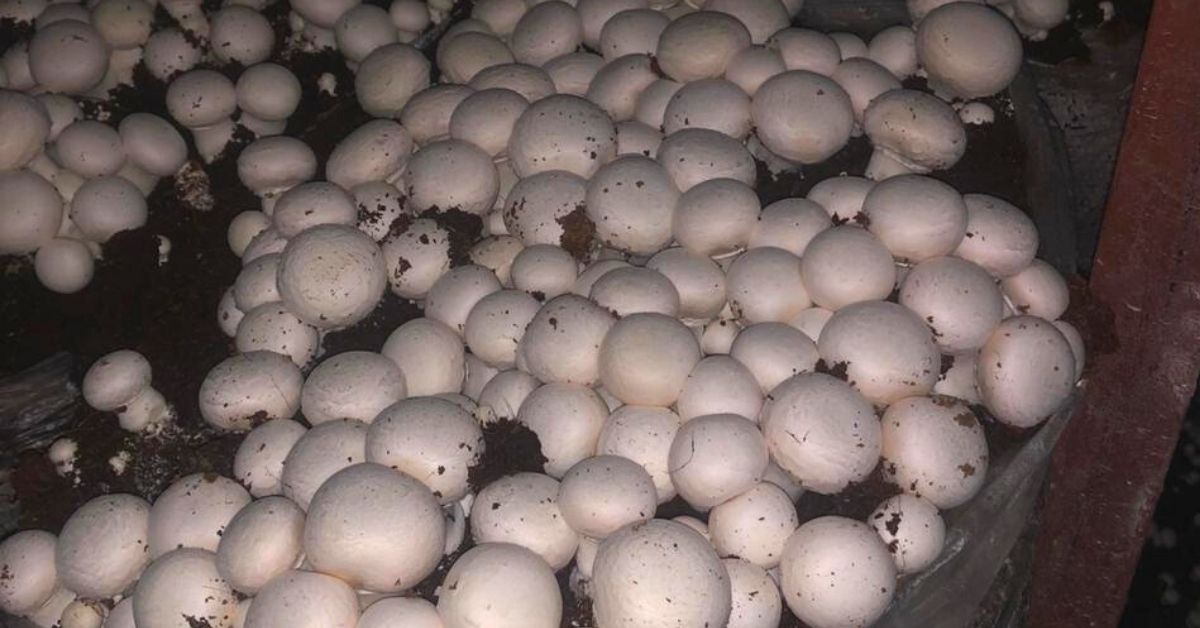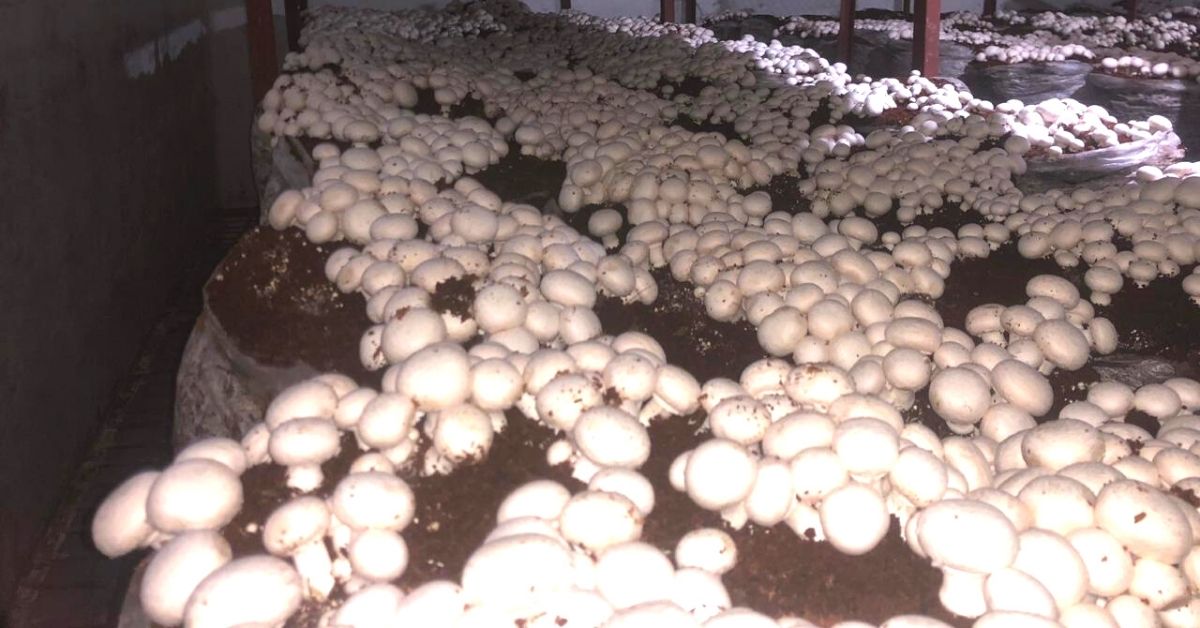In 1992, Sanjeev Singh was arguably one of the only farmers growing mushrooms in Punjab. At 25, the Tanda village farmer began his journey from his backyard. He says his inspiration came from Mera Pind Mera Kisan, a programme on farmers telecast on Doordarshan, a government news channel. He was in college at the time.
Determined to try his hands at growing this lucrative crop, he dedicated a year to research and exploring the potential market, as well as the methods used to grow the crop. “I enrolled in a year-long course on mushroom farming at Punjab Agricultural University. I learned it was possible to grow mushrooms indoor vertically, and in bags. The crop does not require any soil, but organic compost, which is an easy solution,” he says.
Sanjeev, now 54, was not aware of any person practicing mushroom farming at the time, which added to the challenge of having to experiment and learn all by himself. At the time, there was also a general lack of awareness about mushrooms. The spawns (seeds) were unavailable locally, and needed to be procured from Delhi.
A scientific approach

The farmer began growing mushrooms seasonally, which helped him earn additional income alongside conventional farming. For eight years, he struggled with growing good quality mushrooms and establishing a stable market.
“In 2001, I started growing them methodically. I built a concrete room and installed metal racks over six layers. Bags filled with compost were then stacked on top. It was in a controlled environment. The organic compost contains the same amount of nitrogen as Urea,” he tells The Better India, adding that he set up his compost unit to reduce the cost of purchases.
Sanjeev also set up a laboratory in 2008 to grow spawns for mushrooms and sell them. Over the years, his facility expanded to a 1,500-sq ft area, equivalent to 2-acre land.
Earning more from less

Sanjeev says his seeds and products began reaching places like Jammu, Jalandhar, Haryana, Himachal, and other neighbouring states. Over the years, his production has increased to harvesting about seven quintals of mushroom a day, and he now earns Rs 1.25 crore a year.
He says the reason behind his success has been the lucrative market for mushrooms. “Mushrooms have a high market potential. The pressure of having limited space on land to grow food is increasing. Vertical farming, used for growing mushrooms, can help save that space. I also earn more — Rs 1 crore from two acres of land. It would have taken about 200 acres of land to earn the same amount of money through conventional farming,” he adds.
He says that in 2015, he was awarded by the state government for his progressive farming practices. He earned the title of the ‘Mushroom King of Punjab’ by locals.
Sanjeev says mushrooms can be grown through the year and are not vulnerable to harsh weather conditions. “Such innovative solutions will help to reduce stress on soil and help farmers earn a better living,” he adds.
Edited by Divya Sethu
No comments:
Post a Comment